Picturesque Album of the Mexican Republic
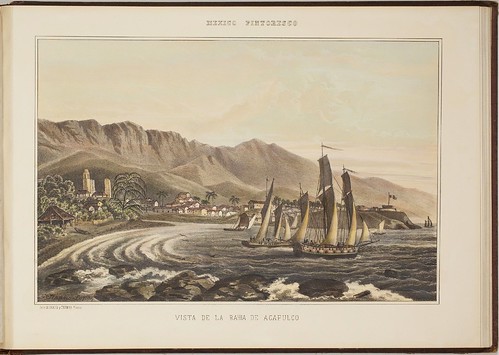
Vista de la bahia de Acapulco
(View of Acapulco Bay)
(View of Acapulco Bay)
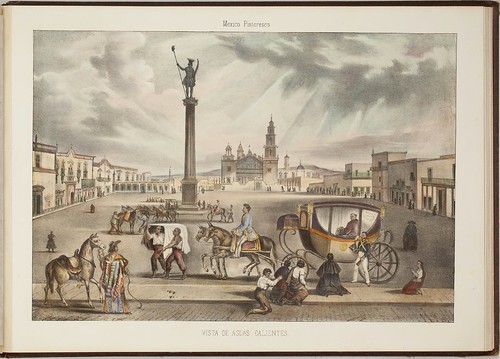
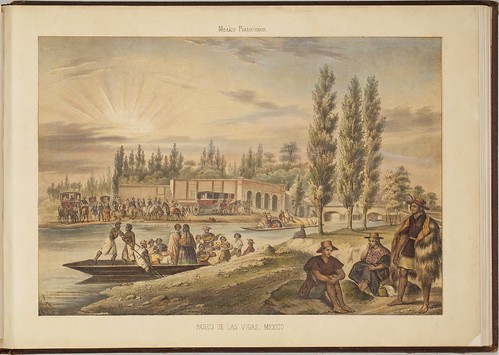
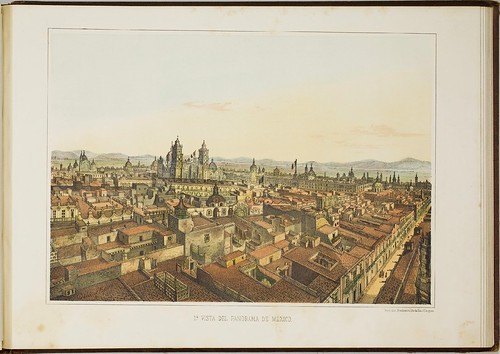
Vista del panorama de Mexico
(Panoramic view of Mexico City - one of a number in the album)
(Panoramic view of Mexico City - one of a number in the album)
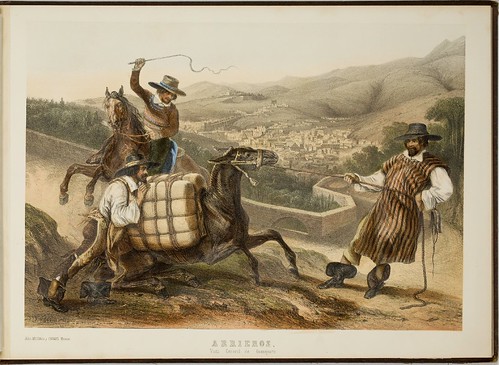
Arrieros - Vista general de Guanajuato
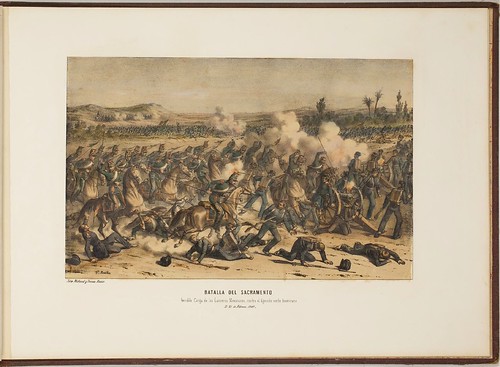
Battala del Sacramento
A scene from the Battle of the Sacramento (river) in the state
of Chihuahua from the American-Mexican war of 1847
of Chihuahua from the American-Mexican war of 1847
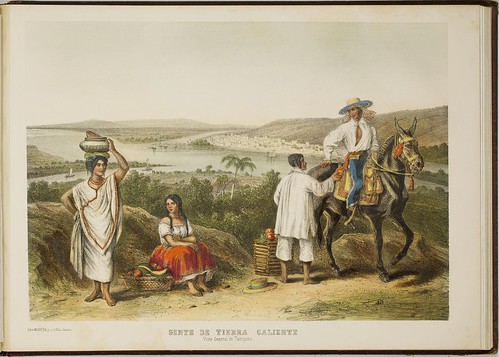
Gente de Tierra Caliente vista general de Tampico
(People from the general region of 'Tierra Caliente',
in front of a view of the city of Tampico, capital of Tamaulipas)
in front of a view of the city of Tampico, capital of Tamaulipas)
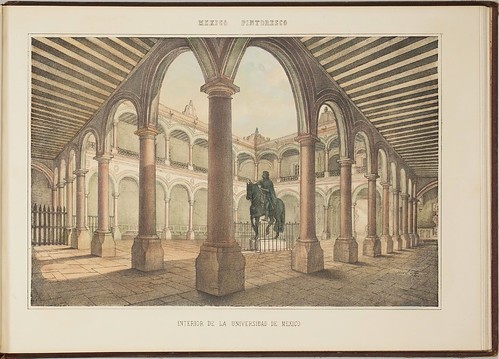
Interior de la Universidad de Mexico
(Inside the University of Mexico)
(Inside the University of Mexico)
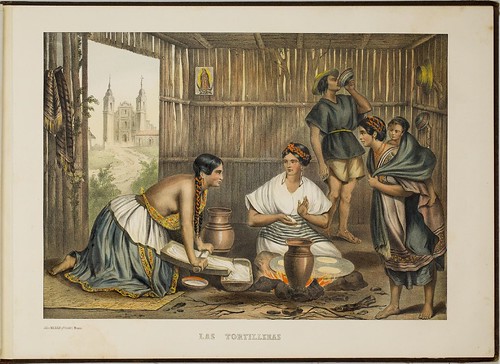
Las tortilleras
(Tortilla makers)
(Tortilla makers)
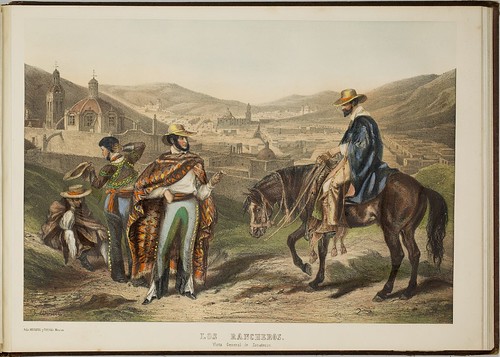
Los rancheros. Vista general de Zacatecas
(Ranchers or cattlemen, with view from the state of Zacatecas)
(Ranchers or cattlemen, with view from the state of Zacatecas)
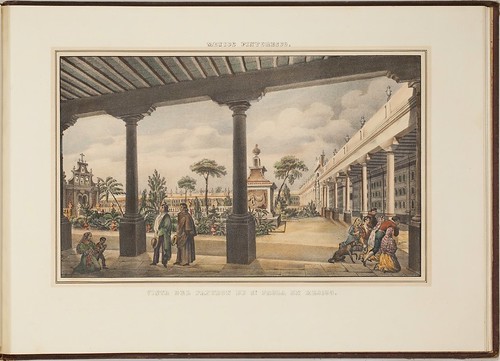
Vista del Panteon de Sa. Paola en Mejico
UPDATE: Will & Aurore have kindly written to say that the Panteon (pantheon) Santa Paola is located in Mexico City and the writing immediately below here - which I won't remove - is incorrect. See this page [T] at Mexicomaxico.(Online references are somewhat ambiguous, but I've decided to believe [wrongly, as it turns out]
Excavation of the Santa Paola cemetery site began in 1865 and mummies were found that have been incorporated into something of a memento mori*-
'Album Pintoresco de la Republica Mexicana' was published in about 1850 by Julio Michaud & Thomas. The author (and one of the illustrators) is recorded as Pierre Frédéric Lehnert. Other contributing artists include: F Bastin, Chénot, and Urbano Lopez. The album consists of 45 lithographs, some modelled after original war paintings by Carl Nebel and Pedro Gualdi.
A first edition of the album is apparently very rare, listed at €11,000 at one site. I say 'apparently' because the publishing history is complicated with various editions, and varying numbers of illustrations, issued in the early 1850s. Or so it seems.
'Album Pintoresco de la Republica Mexicana' is available from Southern Methodist University, Central University Libraries, DeGolyer Library. Thanks CB.
Previously: Mexico.

First, I want tell you that I love your divulgation work: It's incredible and wonderful; materials that you share are fascinanting.
ReplyDeleteWith regard to Santa Paola cementery, existed one -moreover- in the Mexico City, it dates from centuries XVIII-XIX (founded in 1784, for the Saint Andrew Hospital; in 1836, it was declared general cementery, added balustrades, cedars, pines, cypress -as look at litography- and here buried several illustrious political figures). It was clausured at 1891.
Because of the niches can be seen -in the right side of picture-, and the chapel architecture, exactly it's this. The chapel was demolished during Paseo de la Reforma ampliation (1960).
In the other hand, the mummies of Guanajuato are tourist attraction and memento mori, that's true, but they don't have relation with "el dia de muertos" devoted to remember and honour beloved deceased.
Greetings.
Thanks very much Aurore Dupin. Somebody else ('Will') just emailed to tell me that Santa Paola cemetery is in Mexico City. I'll change the reference.
ReplyDeleteYou're welcome; it was my pleasure. :)
ReplyDeleteSpot on with this write-up, I truly think this web site needs far more consideration. I’ll most likely be again to learn way more, thanks for that info
ReplyDeleteTruly wonderful post. I absolutely loved looking at all the vistas on the Album. Thank you.
ReplyDeleteSanta Paula pantheon was located in Mexico city but the human remains where moved and the pantheon demolished in 19th century
ReplyDelete